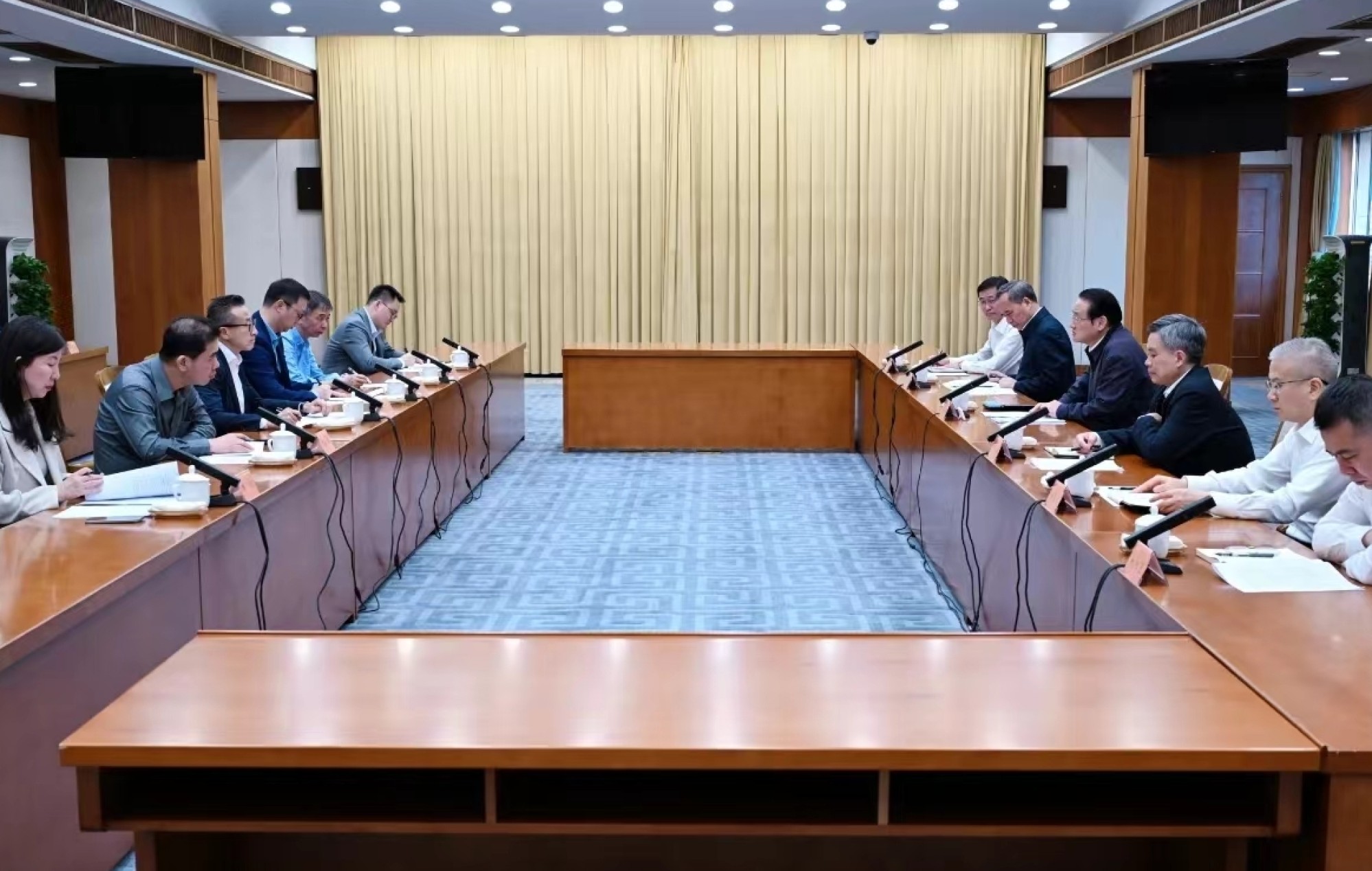Advertisement
Advertisement

China’s Zhejiang province reassures support for Alibaba, led by new chairman Joe Tsai, as company plays pivotal tech development role amid expansion into AI, enterprise market
- Senior Zhejiang officials called on Alibaba to ‘regain momentum, open new chapters and renew glory’, increasing its contribution to the province
- They urged Alibaba’s new leadership to boost investment in frontier tech research and promote innovation in digital technology
Alibaba Group Holding’s top management, led by chairman Joe Tsai and chief executive Eddie Wu Yongming, this week met eastern Zhejiang province’s senior officials who reassured support for the e-commerce giant’s latest initiatives amid Beijing’s fresh backing of China’s Big Tech sector.
Zhejiang’s top cadre – including provincial Communist Party Secretary Yi Lianhong and Liu Jie, the party’s chief in Hangzhou – met Tsai, Wu and Alibaba Cloud founder Jiang Wan at a symposium on Tuesday, according to a report on Wednesday by official mouthpiece Zhejiang Daily.
It was their first meeting since Alibaba, owner of the South China Morning Post, named group co-founder Tsai and Wu to take over the company’s leadership, a few months after the company announced the overhaul of its sprawling US$257 billion tech empire.
Alibaba must “regain momentum, open new chapters and renew glory” to make a greater contribution to Zhejiang, Yi told the company’s top management, according to the Zhejiang Daily report. He also said it was Zhejiang’s hope that Alibaba would further deepen its roots in the province to serve China and the world.

Yi, who visited Alibaba’s headquarters in Hangzhou last December after his appointment as Zhejiang’s party chief, said Alibaba must not only set an example in the “platform economy” – referring to the country’s internet sector – but also in terms of charity work and support for the Communist Party’s development, according to the report.
Specifically, Yi called on Alibaba to boost investment in frontier tech research and promote innovation in digital technology.
His remarks to Alibaba’s senior management underscore how Chinese local governments are seeking closer ties with the country’s Big Tech sector, as these companies ramp up expansion initiatives after Beijing concluded its 32-month regulatory crackdown.
The Communist Party’s seven-member Politburo Standing Committee, the country’s highest policymaking body, in July said the nation will “promote the standardised, healthy and sustainable development of [internet] platform enterprises”.

The Politburo’s strong endorsement shows Beijing’s resolve to enable Big Tech companies to resume their growth trajectory and help boost the country’s post-pandemic economic recovery, which regained some momentum in the third quarter.
In a whistle-stop tour of Zhejiang in September, Chinese President Xi Jinping called on local officials to help drive greater scientific and technological innovation, according to state media.
Alibaba had long been the poster child of Zhejiang’s vibrant private sector, with founder Jack Ma developing rapport with local authorities since the company was established in provincial capital Hangzhou in 1999.
That relationship, however, soured in November 2020 when regulators called a halt to the dual initial public offering in Hong Kong and Shanghai of Ant Group, Alibaba’s fintech affiliate, less than 48 hours before the start of trading. Financial regulators slapped Ant with a 7.123 billion yuan (US$973 million) fine for breaking rules in July this year, which ended the sweeping crackdown on China’s tech sector.
New Alibaba CEO sharpens focus on AI as he takes over the reins
New Alibaba CEO sharpens focus on AI as he takes over the reins
Alibaba, whose shares in Hong Kong posted a decline of more than 70 per cent since October 2020, has now sharpened its focus on artificial intelligence (AI) and enterprise users, which new group chief executive Wu outlined in an internal letter sent to employees in September. Alibaba’s share price closed up nearly 3 per cent on Friday.
The company’s meeting with Zhejiang officials was conducted on the sidelines of the opening of Alibaba Cloud’s annual Apsara Conference in Hangzhou on Tuesday. The three-day event, which was attended by Zhejiang Governor Wang Hao, concluded on Thursday.
At the opening of the conference, group chairman Tsai said the company’s digital technology unit now serves 80 per cent China’s technology companies and half of the country’s AI large language model (LLM) firms. LLM is the technology used to train AI applications like ChatGPT.
Alibaba also unveiled at the conference a suite of new industry-specific AI tools, built on its Tongyi Qianwen LLM, to make it easier for companies across various sectors to develop their own AI-enabled applications. Alibaba’s chip design subsidiary T-Head, meanwhile, launched a RISC-V-based controller chip for server storage.

Post
